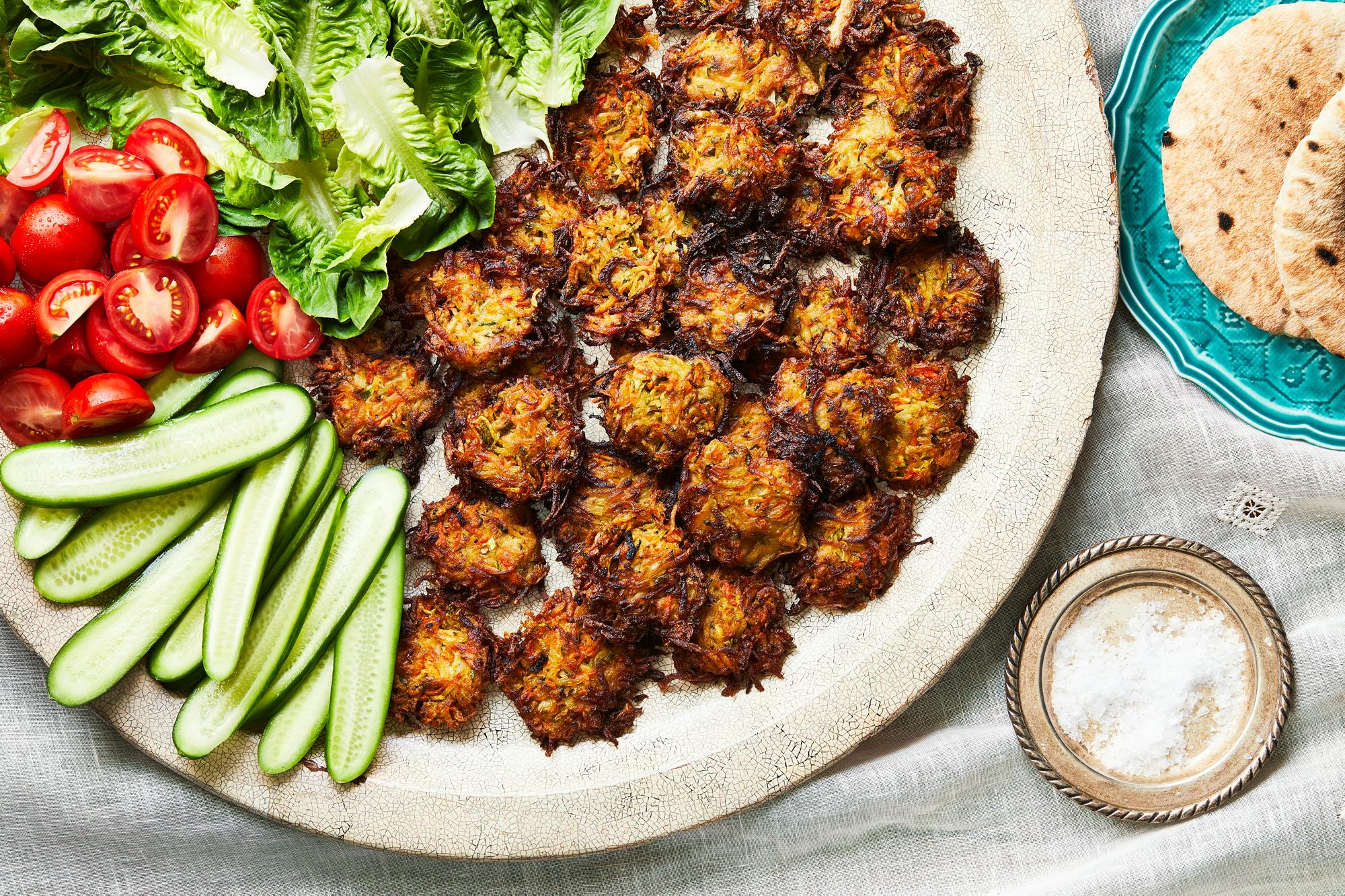Shared by Sarina Roffé

When Sarina Roffé was growing up in deep Brooklyn, her grandmother Esther’s backyard and garage were a hub for the local Syrian Jewish community. Esther and Sarina’s grandfather Selim — who came from Beirut and Aleppo, respectively, in 1920 — had built a backyard kitchen there for their catering business; it was the first in the Syrian Jewish community in Bensonhurst. Esther was known for her traditional Syrian fare like kibbeh and lachmagine, which were served at weddings, bar mitzvahs, and other celebrations.
“Members of the Sephardi community would trek up the narrow side alley to her backyard kitchen to purchase her goodies,” Sarina writes in the introduction to her spiral bound cookbook “Backyard Kitchen: The Main Course.” “The smells would emanate from the kitchen and greet you like a breath of fresh air.”
Her grandmother was a prolific cook. Like other members of their community at the time, Esther spent time in Bradley Beach, NJ during the summer. Sarina recalls her grandmother going to the nearby farmers market, picking up fava beans, and shucking them from a basket on the porch. The leftovers were tucked into the freezer to be used later in the year. Her freezer was perennially well stocked, ready for company or a catering job, and homemade pickles were always on hand.
“Visiting your grandparents weekly was mandatory when I was growing up,” Sarina says. And, because her family lived just a few blocks away, Sarina spent many afternoons after school in that backyard kitchen, helping out and watching her grandmother’s quick work. Sarina isn’t sure where Esther learned to cook, but says she likely picked up some of her kitchen skills from her mother who was born in Beirut and her mother’s sister Rose Cohen Misrie, who opened the Egyptian Rose restaurant on the Lower East Side in 1919.
There was a rhythm to the family’s cooking, both at her grandmother’s house and in her mother Renee’s kitchen. On Shabbat, there was chicken with potatoes at home and at her grandmother’s house, there was mazza, a Syrian spread of appetizers like lachmagine, homemade pickles, olives, hummus, and bazergan, a bulgur and tamarind salad that family members would dip meat-filled sambusak into. Some weeks, there was also ejjeh, a fried patty that the family sometimes tucks into a pita. And meals on Thursday and Saturday evenings were simple and vegetarian — spinach and cheese casserole served with plain yogurt, couscous with chickpeas, mujadara, and eggs cooked in tomatoes were in regular rotation.
Despite helping her mom at home and her grandmother in the backyard kitchen, Sarina says, “I really learned to cook when I moved away from home, and I couldn't depend on them to make things for me.” She would call home to Brooklyn and learn to make recipes when she visited, later recreating them in her kitchen in Gaithersburg, Maryland.
Today, fewer young people in her community are learning those recipes, but she is determined her family keeps cooking them. When her children or grandchildren ask for a dish, she invites them over to make it together. With pride, she shares that two of her granddaughters already know how to make Syrian string cheese. “Cooking is a family affair for us,” Sarina adds.
